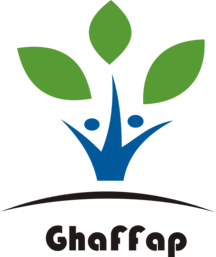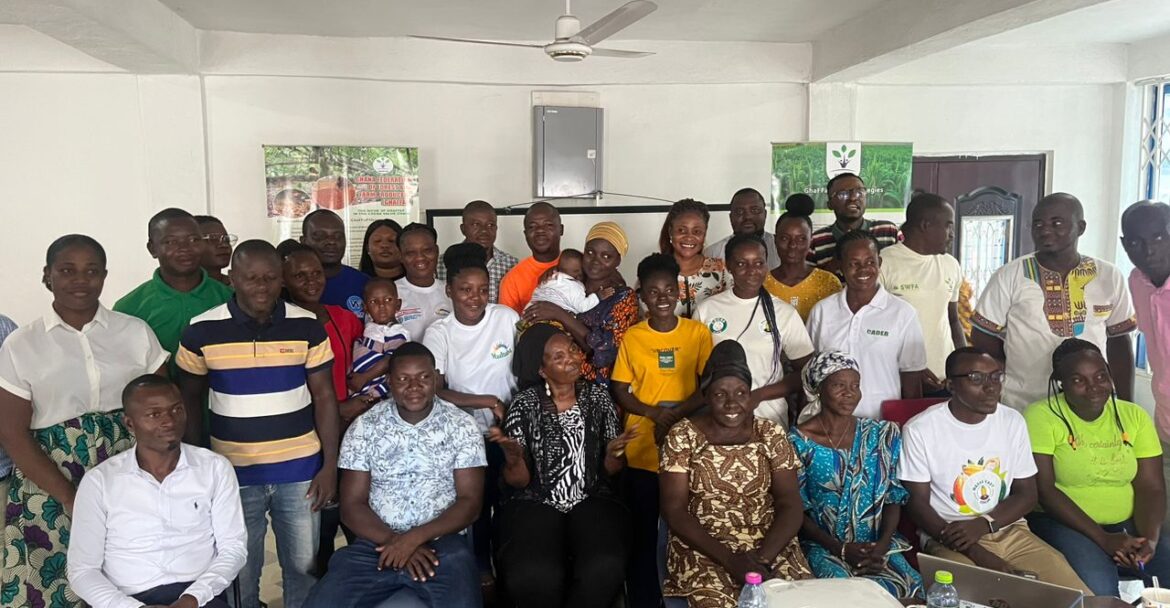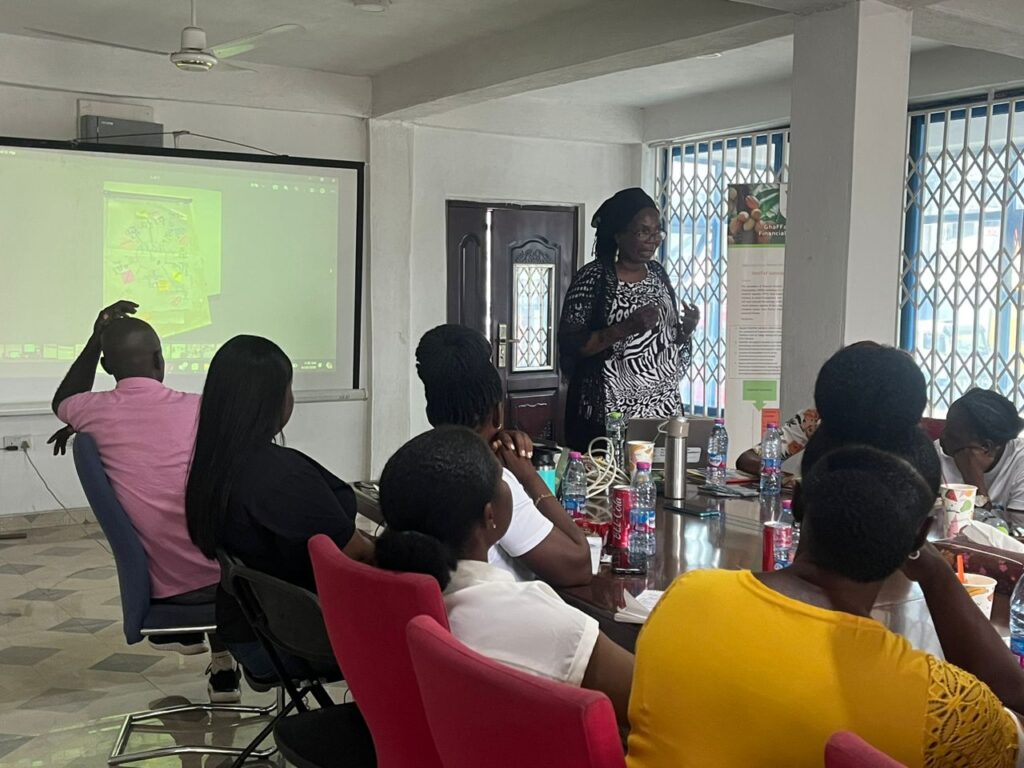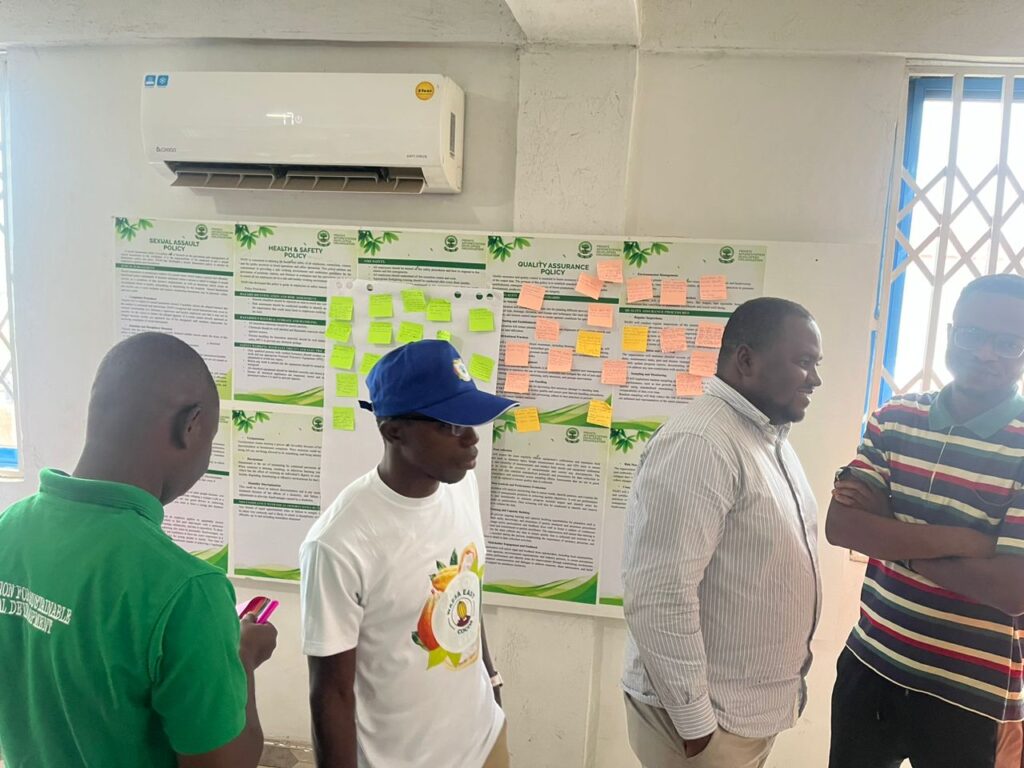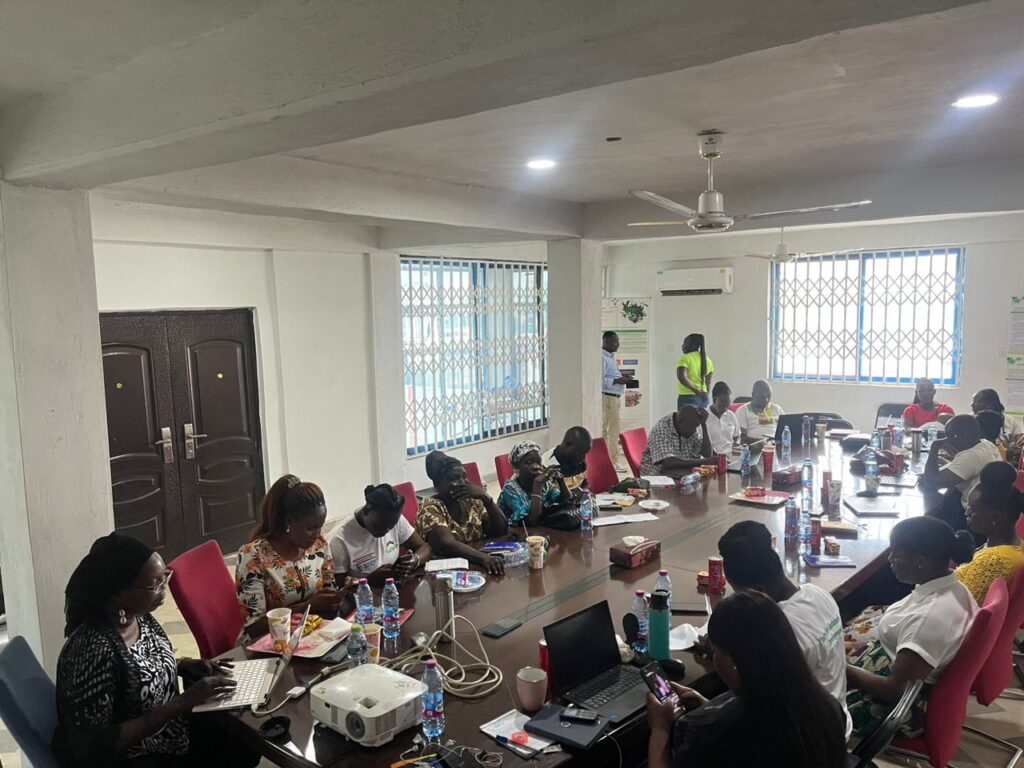On Wednesday, June 19th, 2024, the Ghana Federation of Forest and Farm (GhaFFaP) organized a gender training session at its secretariat. Representatives from various Forest and Farm Producer Organizations (FFPOs) attended, including TUDRIDEP, TELE-BERE, SWFA, KANBAOCU, OFFCOP, MAALTAABA, WCFO, ASETENAPA, WASSA-EAST, ISRUDEV, PADO, CADER, and KOKOOPA. These groups represent the three ecological zones of Ghana: the Savannah, Transition, and Forest zones.
The training highlighted the important role women play in agriculture and how gender inequality affects productivity. Women are crucial in agriculture, involved in planting, weeding, harvesting, processing crops, and selling produce. Despite their significant contributions, their efforts are often undervalued and overlooked.
Gender inequality in agriculture reduces productivity and sustainability. Women face many barriers, such as limited land ownership, restricted access to credit, and lack of training. These challenges prevent them from reaching their full potential and contributing fully to agricultural development. Addressing gender inequality with policies that ensure equal rights, better resource access, and education is essential for sustainable agricultural growth.
Hajia Alima Sagito, President of GhaFFaP, stated that the GhaFFaP Gender Strategy is a crucial part of the Federation. Their approaches include women advocacy, women coaches, and women business mentors, aligning with GhaFFaP’s Agenda 2030.
In conclusion, women are essential to agriculture. By recognizing and addressing the challenges they face, we can unlock their full potential and promote sustainable development. Empowering women in agriculture is not only fair but also necessary for improving productivity, food security, and community well-being. Investing in women farmers is investing in a brighter, more sustainable future for everyone.
